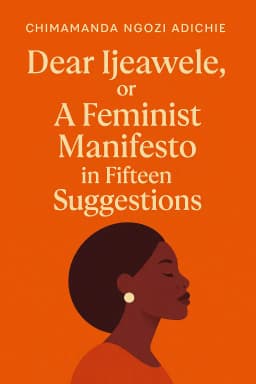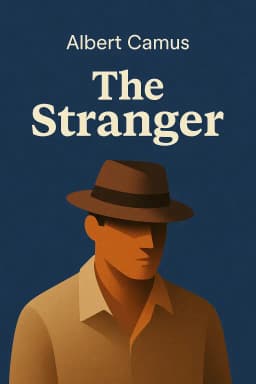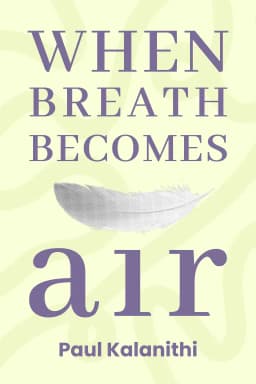
The Trap of Modern Work
Golden Hook & Introduction
SECTION
Michael: You think your job gives your life meaning? What if I told you that for the last 300 years, we've been systematically trained to value the most meaningless part of our existence? That the hamster-wheel feeling isn't a bug, it's a feature of modern life. Kevin: Whoa, that’s a heavy way to start. I mean, my whole life is built around the idea that my work, my career, is what defines me. You’re saying that’s a mistake? That it’s… meaningless? Michael: Not a mistake you made, but a trap we’ve all fallen into. That's the provocative heart of The Human Condition by Hannah Arendt. Kevin: Arendt... she's a giant of 20th-century thought, right? I know her work is considered foundational, but also notoriously difficult. People get PhDs trying to unpack her ideas. Michael: Exactly. And you can't understand this book without knowing she was a Jewish refugee who fled Nazi Germany. Her obsession with freedom and the public sphere wasn't academic; it was born from seeing a society completely collapse. This book, published in 1958, was her attempt to diagnose how that collapse becomes possible. Kevin: That context changes everything. It’s not just philosophy for philosophy's sake. It’s a survival guide, in a way. Michael: It’s a warning. And she starts by blowing up our whole concept of what it even means to be "active" in the world. She argues we're not doing one thing when we go to our jobs, but three very different things.
The Three Lives We Live: Labor, Work, and Action
SECTION
Kevin: Okay, so what are these three things? Because right now, my "active life" feels like a blur of emails, meetings, and trying to figure out what’s for dinner. Michael: Arendt would say that’s the problem right there. We’ve mashed it all together. First, she says, there is labor. This is the activity of the animal laborans—the laboring animal. It’s everything we do to stay alive. Eating, sleeping, cleaning, and any job that just produces something to be immediately consumed. It’s a cyclical, endless process. You clean the kitchen, and tomorrow it’s dirty again. You eat a meal, and a few hours later you’re hungry again. It never builds anything permanent. Kevin: That sounds… bleak. And depressingly familiar. It’s the biological hamster wheel. So what’s the second one? Michael: The second activity is work. This is what homo faber—man the maker—does. Work has a clear beginning and a clear end. You build a table, you write a book, you design a bridge. You create a durable object that becomes part of the world and outlasts the effort you put into it. It adds to what Arendt calls the "human artifice," the stable world we all share. Kevin: I can see that distinction. Labor is maintenance, work is creation. One is fleeting, the other is lasting. So a chef preparing a meal is laboring, but an engineer building the oven is working. Michael: Precisely. But then there's the third, and for Arendt, the most important activity: action. Action is the one thing we can only do with other people. It’s not about making things; it’s about starting things. It’s speech, it’s political engagement, it’s gathering with others to create something new in the world, like a law, a community, or a revolution. Action is what reveals who we are—our unique identity—and it’s the source of all new beginnings. Kevin: So labor is for survival, work is for building a world, and action is for freedom and creating a legacy with others. But why was this so urgent for her to point out in 1958? Michael: Because of two events that happened right as she was writing. The first was the launch of Sputnik in 1957. She saw this as a terrifying symbol. On one hand, humanity was literally trying to escape the Earth—the very condition of our lives. She called this "world alienation." Kevin: Wow. We saw it as a triumph of science, and she saw it as us trying to abandon our own home. Michael: Exactly. And at the same time, on the ground, automation was taking off. This created a terrifying paradox for her. We were on the verge of creating a society of laborers—a society that glorifies labor above all else—but without any labor left to do. What would we do then? What would give our lives meaning if the only thing we valued was gone? Kevin: That is a chilling thought. A whole society built for the hamster wheel, and then the wheel is taken away. But hold on, isn't this just semantics? My job feels like a mix of all three. I do repetitive tasks—labor. I produce reports that last—work. I collaborate with my team—action. Why does separating them so rigidly matter in the real world? Michael: It matters because when we confuse them, we start to value the wrong things. We treat politics, which should be about free and unpredictable action, like a predictable job of 'making' policy, like a craftsman making a chair. Or worse, we reduce our jobs, which could be meaningful work, to just "making a living," reducing ourselves to laboring animals. Arendt’s fear was that the mindset of labor—endless, thoughtless, cyclical production and consumption—was taking over every aspect of our lives.
The Lost Public Square
SECTION
Kevin: That idea of politics as 'action' feels so different from what we have now. It feels more like… administration. Like we’re all just managers of a giant, dysfunctional household budget. Michael: You’ve just hit on her second major point. Arendt traces this feeling back to the ancient Greeks. For them, there was a sharp, uncrossable line between two spheres of life. First was the private realm, the household or oikos. This was the realm of necessity, ruled by the head of the household. It was where you did your labor—growing food, making clothes—all to stay alive. It was not a place of freedom. Kevin: Okay, the home is for survival. So where was freedom? Michael: Freedom existed only in the public realm, the polis. This was the space where citizens, having taken care of their necessities in private, could meet as equals. Here, they didn't labor or work; they acted. They debated, they persuaded, they made decisions, and through their great deeds and words, they revealed who they were and vied for a kind of immortality—to be remembered forever. Kevin: That sounds incredibly idealistic. To illustrate this, Arendt talks about Achilles, right? The great hero of the Trojan War. Michael: Yes, Achilles is the perfect example. He was given a choice: a long, happy, private life where he would be forgotten, or a short, glorious life of action on the battlefield where his name would live forever. He chose action and glory. For the Greeks, that was the pinnacle of human existence—to do something so great in public that your story would be told for eternity. Kevin: But today, that distinction is gone. My home is where I work, and my political engagement happens on my phone, from my couch. It’s all blurred together. Michael: And Arendt says that’s because a third thing emerged and swallowed the other two: the social realm. With the rise of the modern nation-state, society became like one enormous family. And what do you do in a family? You manage it. Politics became "social administration" or "national housekeeping." The goal shifted from individual greatness in public to the smooth, comfortable functioning of the collective. It became about behavior, not action. We are expected to conform, to be normal, to fit in. Kevin: This is where critics, especially feminists and Marxists, take issue with her, right? They say her 'public realm' is an old boys' club that ignores the real-world problems of the household—poverty, inequality, the labor of women—by calling them 'non-political.' Is she just romanticizing a flawed, exclusive past? Michael: That's a very powerful and valid criticism. Her framework can seem to dismiss the very real struggles that most people face. But I think her point isn't to go back to Athens. Her point is to issue a warning. When we turn politics into just another form of management, when the goal is simply to keep the big social machine running smoothly, we lose the space for true, spontaneous, world-changing action. We lose the very thing that makes us free.
World Alienation and the Triumph of the Laboring Animal
SECTION
Michael: And this blurring of worlds is part of a much bigger, more profound problem Arendt calls world alienation. Kevin: That sounds like a sci-fi concept. What does she mean by that? Michael: She traces it back to one moment: Galileo pointing his telescope at the sky. She calls this the discovery of the Archimedean point—the point outside the world from which you can, in theory, move the world. Kevin: I remember that from science class. "Give me a lever long enough and a fulcrum on which to place it, and I shall move the world." Michael: Exactly. For Arendt, the telescope was that fulcrum. For the first time, humans could look at the Earth as if they were not on it. We began to trust what our instruments and calculations told us more than what our own senses did. This, she argues, was the beginning of our detachment from the world we actually live in. We became observers of our own home, not participants in it. Kevin: So you're saying the scientific revolution, which we see as pure progress, had this dark side of detaching us from our own planet? That’s a mind-bending idea. Michael: It's a profound one. And this alienation from the world paved the way for the ultimate victory of the animal laborans—the laboring animal. In a world we no longer feel truly part of, the only thing left is our own biological life. The highest good becomes not building a lasting world (work) or achieving public greatness (action), but simply sustaining and maximizing the life process itself. Kevin: And that leads directly to a consumer society. The goal is just to produce more and consume more, in an endless cycle, to keep the biological machine of society going. Michael: You've got it. We become a society of jobholders, where the purpose of any activity is reduced to its ability to "make a living." Art, philosophy, community—they all get turned into hobbies or, worse, professions. Their intrinsic value is lost, and they're judged by their utility in the great life process. Kevin: What’s the end game here, according to Arendt? If we're all just 'laboring animals' in a world we feel alienated from, what happens to us? Michael: The danger is a kind of thoughtless passivity. We become cogs in a machine we don't understand, pursuing a happiness defined only by the absence of pain. We lose our capacity for distinction, for uniqueness. We lose our connection to a shared, durable world. And most importantly, we risk losing our capacity for natality. Kevin: Natality? You mean birth? Michael: Yes, but more than that. For Arendt, natality is the miracle of beginning. Every human born into the world carries the potential to start something completely new, to interrupt the automatic processes of history and nature. It’s the source of our freedom. Her fear is that a society of laborers, focused only on the endless cycle of life, forgets how to begin anew.
Synthesis & Takeaways
SECTION
Michael: So if you connect the dots—the confusion of labor, work, and action; the rise of the all-consuming 'social' realm; and our deep sense of world alienation—it all points to this one fundamental danger: the loss of human plurality and our capacity for natality. Arendt famously wrote, "men, not Man, live on the earth and inhabit the world." Kevin: It’s the uniqueness, the unpredictability of each individual, that she’s fighting to preserve. The idea that a single person, through action, can change everything. Michael: Yes. She saw in totalitarianism what happens when plurality is destroyed, when an entire people is made to act as one giant, predictable Man. Her whole philosophy is a defense of the messy, unpredictable, and miraculous condition of human beings living together as distinct individuals. Kevin: It’s a pretty bleak diagnosis, though. It makes you wonder, in our own daily lives, are we laboring, working, or acting? And are we okay with the answer? When I'm scrolling on my phone, am I consuming? When I'm at my desk, am I building something that will last? When I'm talking with friends, am I just socializing, or are we, in some small way, acting? Michael: That's the question Arendt leaves us with. It’s not about finding a perfect balance, but about being conscious of the distinctions. Recognizing that there is more to life than just the cycle of production and consumption. That there is a world to be built, and a public stage on which to act. Kevin: It’s a powerful challenge. We’d love to hear what you all think. Are you seeing these distinctions in your own life? Does your job feel like labor or work? Where do you find space for action? Let us know. Michael: This is Aibrary, signing off.









